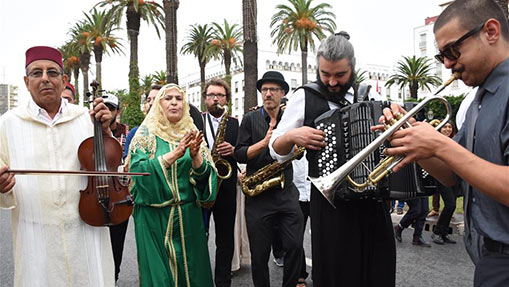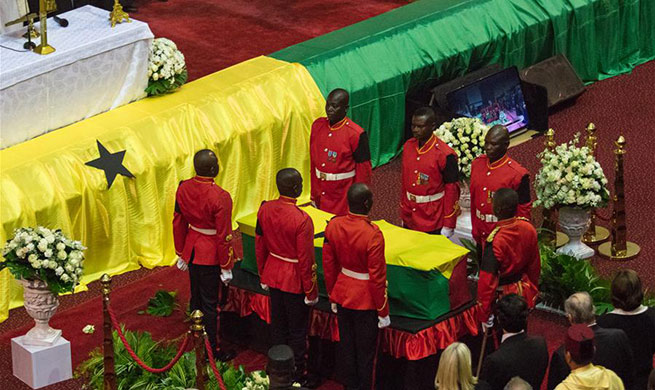BERLIN, Sept. 14 (Xinhua) -- German Chancellor Angela Merkel's CDU/CSU conservative sister parties both suffered losses of voter support following a series of far-right marches in Chemnitz, according to the Politbarometer opinion poll published on Friday by public broadcaster ZDF.
According to the regular and closely-watched survey, only 30 percent (minus one percentage point) of Germans would cast their ballot for either the Christian Democratic Union (CDU) or the Christian Social Union (CSU) if federal elections were to be held next Sunday.
It was the worst ever Politbarometer reading recorded for the two parties which currently form a "grand coalition" government in Berlin with the German Social Democrats (SPD).
By contrast, the SPD and Greens (Gruene) appeared to benefit from ongoing debates over resurgent right-wing extremism in Germany with monthly increases in voter support to 20 percent (plus two percentage points) and 16 percent (plus two percentage points) respectively.
The Left party was stagnant in the poll at eight percent, while the Alternative for Germany (AfD) party fell by two percentage points to 15 percent and the Free Democratic Party (FDP) declined by one percentage point to seven percent.
As a consequence, the only other political alliance which would achieve a legislative majority in the German parliament aside from the "grand coalition", would still be a so-called "Jamaica" coalition between the CDU, CSU, FDP and Greens.
The findings were based on a representative telephone survey of 1,339 voters between Sept. 11 and Sept. 13.
Respondents were also questioned about their trust in German institutions in light of the alleged murder of a German by two asylum seekers and subsequent episodic violence against foreigners and security officers by protestors in Chemnitz.
The police (81 percent) and courts (58 percent) in Germany were hereby found to enjoy the trust of large majorities of voters.
However, the Federal Office for the Protection of the Constitution (BfV), whose president Hans Peter Maasen has been criticized for stoking far-right conspiracy theories in relation to the Chemnitz marches, was only trusted by 38 percent of respondents.
Majorities of voters further expressed their greater dissatisfaction with the asylum policies of Chancellor and CDU leader Angel Merkel, as well as the combative interior minister and CSU leader Horst Seehofer compared to earlier Politbarometer findings from late June.
Some 55 percent (plus five percentage points) said that Merkel was doing a bad job in the issue area. Seehofer's role was viewed even more critically, with 65 percent (plus 14 percentage points) giving the interior minister a negative rating.
Just under half (47 percent, up from 23 percent in September 2017) of German voters now expected the AfD to establish itself successfully as a political party in the country in spite of its involvement in Chemnitz protests and related calls for its links to right-wing extremists to be monitored by the BfV.
At the same time, 77 percent of respondents voiced their belief that right-wing extremist views were common or very common in the AfD.
Such right-wing extremist views were identified as significant threat to German democracy by 79 percent of voters. Respondents were more relaxed about the potentially corrosive effects of left-wing extremism on Germany's constitutional order, which was only flagged by 48 percent as noteworthy risk in this context.
Aside from domestic politics, the Politbarometer poll included a question about whether voters were in favor of a German participation in a military strike against the Syrian government of president Bashar Al-Assad in response to a hypothetical chemical attack on the rebel-held Idlib region.
Such a use of force, openly mulled by the United States and some other NATO members, was rejected by 63 percent of respondents.












